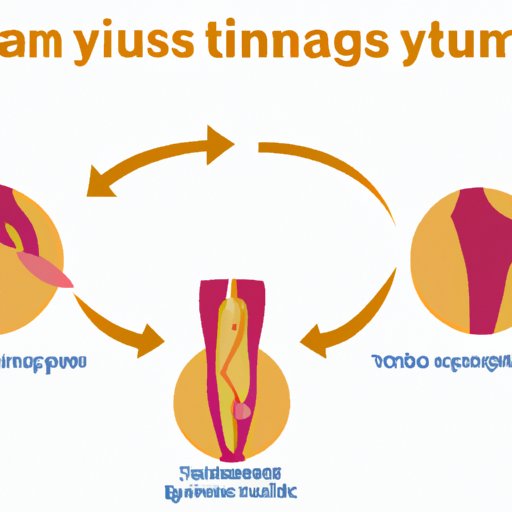
Introduction
Vaginismus is a condition that affects many women and has a significant impact on their intimate relationships. The involuntary contraction of the vaginal muscles can make intercourse and other forms of vaginal penetration painful or impossible, making it difficult for women to experience sexual pleasure and engage in fulfilling relationships with their partners.
Causes and Symptoms of Vaginismus
Vaginismus is caused by a variety of factors, including physical, psychological, and emotional issues. Fear of pain, anxiety, past sexual trauma or abuse, and even a lack of education about the female anatomy can contribute to the development of vaginismus.
The symptoms of vaginismus can vary from mild discomfort to severe pain. In some cases, individuals may experience cramping, burning, or stinging sensations. Some women may also experience difficulty inserting a tampon or undergoing a gynecological exam.
Treatment Options for Vaginismus
When it comes to treating vaginismus, individuals have several options available. Medical treatments, such as pelvic physical therapy and medications, are often used to alleviate the symptoms of vaginismus. Successful treatment may also involve the use of psychological interventions, such as counseling and cognitive-behavioral therapy, to address the underlying psychological factors contributing to the condition.
The success rate of these treatments can vary. While some women can recover relatively quickly after starting treatment, others may experience setbacks and require ongoing support to reach full recovery.
Personal Success Story
One woman who successfully overcame vaginismus had been struggling with the condition for several years. She sought help from a specialist who worked with her to develop a treatment plan that included both medical and psychological interventions. Through a combination of physical therapy, educational resources and counseling sessions, she was able to make significant progress and regain control of her sex life.
For others struggling with vaginismus, she recommends taking things slowly, practicing self-care, and connecting with others who understand what they are going through.
Coping with the Emotional and Psychological Impact of Vaginismus
Vaginismus can be a highly emotional and psychological condition, and the impact on individuals can vary significantly. Some women may experience feelings of shame or inadequacy, while others may feel anxiety or depression.
There are a variety of coping techniques that can help individuals manage the impact of vaginismus on their emotional health. Mindfulness exercises, such as meditation and deep breathing, have been shown to be particularly effective at reducing stress and anxiety. Support groups and counseling sessions can also provide a safe space for individuals to explore their feelings and experiences.
Advice for Partners of Individuals with Vaginismus
Partners of individuals with vaginismus often play an essential role in providing support and encouragement during their recovery journey. Effective communication and understanding are critical when it comes to navigating the physical and emotional challenges of the condition.
Partners can help by taking things at the pace of the individual with vaginismus, maintaining open communication, and focusing on pleasure rather than penetration. The development of alternative sexual activities such as oral sex, mutual masturbation, and the use of sex toys can enable individuals to explore intimacy in new ways and provide opportunities for healing.
Scientific Advancements in Vaginismus Treatment
Recent advancements in the diagnosis and treatment of vaginismus provide hope for individuals struggling with the condition. New medical procedures such as botulinum toxin injections, radiofrequency treatment, and microsurgery offer promising treatments for severe cases. Psychological therapies such as mindfulness, acceptance, and commitment therapy, and cognitive-behavioral therapy, are also emerging as effective treatments for anxiety-related vaginismus and pelvic pain.
Conclusion
Vaginismus can be a challenging condition to live with, but with the right treatment and support, individuals can successfully regain control over their sexual health and well-being. It’s okay to seek help and support and take things one step at a time. By understanding the causes, symptoms, and available treatments, individuals can take the first steps towards overcoming this condition.





